Who Was Behind the Rwandan Genocide? Debunking the "Hutu Extremist" Myth
Who Was Behind the Rwandan Genocide? Debunking the "Hutu Extremist" Myth
Why the ICTR Refuses to Examine the Assassination that Triggered the Rwandan Genocide
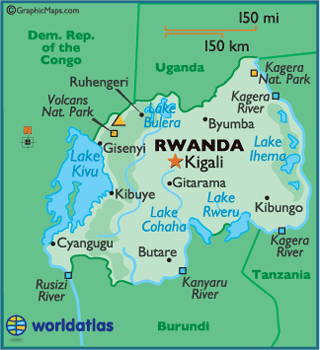
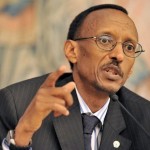 In 1997, the UN tasked the Australian lawyer Michael Hourigan with investigating the assassination of the Rwandan and Burundian presidents. While working for the Prosecutor's Office headed by Louise Arbour, Hourigan found that the assassination was most likely sponsored by Paul Kagame (pictured left) and his RPF. He also found that the RPF received aid from a foreign country. Arbour suppressed the evidence, however, on the grounds that "the event in question" did not clearly constitute "a crime within the tribunal's jurisdiction."8 Although the testimonies of some highly ranked RPF officials in the Bruguiere Report confirmed Hourigan's conclusions, the ICTR nevertheless did not launch a single official inquiry into the assassination. It even prohibited its prosecutors from doing so. For example, Carla Del Ponte, who had just replaced Louise Arbour as Chief Prosecutor of the ICTR, was removed from her position when she relaunched an investigation into the assassination and other related crimes committed by the RPF.9
In 1997, the UN tasked the Australian lawyer Michael Hourigan with investigating the assassination of the Rwandan and Burundian presidents. While working for the Prosecutor's Office headed by Louise Arbour, Hourigan found that the assassination was most likely sponsored by Paul Kagame (pictured left) and his RPF. He also found that the RPF received aid from a foreign country. Arbour suppressed the evidence, however, on the grounds that "the event in question" did not clearly constitute "a crime within the tribunal's jurisdiction."8 Although the testimonies of some highly ranked RPF officials in the Bruguiere Report confirmed Hourigan's conclusions, the ICTR nevertheless did not launch a single official inquiry into the assassination. It even prohibited its prosecutors from doing so. For example, Carla Del Ponte, who had just replaced Louise Arbour as Chief Prosecutor of the ICTR, was removed from her position when she relaunched an investigation into the assassination and other related crimes committed by the RPF.9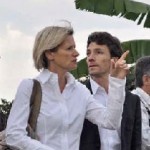 Since 2007, French judges Marc Trevidic and Nathalie Poux (both pictured right) have had authority over Bruguiere's file. However, in contrast to Hourigan, Brugiere, and even the Spanish National Court Judge Fernando Andreu Merelles, who indicted 40 members of the RPF in February 2008 for their alleged crimes after the war, Poux and Trevidic have yet to put forward a definitive conclusion. That being said, supporters of the official narrative maintain that Trevidic published a "detailed report" in January 2012 containing conclusive "evidence from French experts, including crash investigators, who proved scientifically that the missiles that shot down the plane came from the confines of the government-run barracks in Kanombe."20 The problem here is that the report was not written by Trevidic, but rather by five "experts" who did not claim to know who fired the missiles and where the missiles came from.21 As a result, lawyers who were tasked with defending the Rwandan individuals indicted by Brugiere in 2006 conveniently argued before the investigating magistrate of the ICTR that the Trevidic Report lacked evidence and should cease to exist. Trevidic refused to dismiss the case in November 2013. 22
Since 2007, French judges Marc Trevidic and Nathalie Poux (both pictured right) have had authority over Bruguiere's file. However, in contrast to Hourigan, Brugiere, and even the Spanish National Court Judge Fernando Andreu Merelles, who indicted 40 members of the RPF in February 2008 for their alleged crimes after the war, Poux and Trevidic have yet to put forward a definitive conclusion. That being said, supporters of the official narrative maintain that Trevidic published a "detailed report" in January 2012 containing conclusive "evidence from French experts, including crash investigators, who proved scientifically that the missiles that shot down the plane came from the confines of the government-run barracks in Kanombe."20 The problem here is that the report was not written by Trevidic, but rather by five "experts" who did not claim to know who fired the missiles and where the missiles came from.21 As a result, lawyers who were tasked with defending the Rwandan individuals indicted by Brugiere in 2006 conveniently argued before the investigating magistrate of the ICTR that the Trevidic Report lacked evidence and should cease to exist. Trevidic refused to dismiss the case in November 2013. 22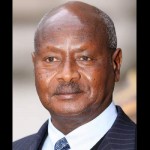 text is needed to understand what may have brought the UN to adopt this myth. First, Kagame underwent his military training at the U.S Army Command and General Staff College in Fort Leavenworth, Kansas, where he may have acquired his mainstream political rhetoric centered on bringing western notions 'democracy' and 'development' to Africa. Then, as a foreigner in Uganda, he somehow became chief of the country's military intelligence, which most likely provided him with the necessary political/military networks to create the RPF and then train its members for a full-scale invasion of Rwanda. Here we must be remember that Kagame reached this position in the same year that Museveni (pictured left), "the darling of the International Monetary Fund, the World Bank, and United States diplomacy since the middle of the 1980s", became Uganda's head of state in 1986.27 By January of that year, Tutsis represented 20-25% of membership for the movement Museveni had created earlier that decade, the National Resistance Army (NRA). 28 29
text is needed to understand what may have brought the UN to adopt this myth. First, Kagame underwent his military training at the U.S Army Command and General Staff College in Fort Leavenworth, Kansas, where he may have acquired his mainstream political rhetoric centered on bringing western notions 'democracy' and 'development' to Africa. Then, as a foreigner in Uganda, he somehow became chief of the country's military intelligence, which most likely provided him with the necessary political/military networks to create the RPF and then train its members for a full-scale invasion of Rwanda. Here we must be remember that Kagame reached this position in the same year that Museveni (pictured left), "the darling of the International Monetary Fund, the World Bank, and United States diplomacy since the middle of the 1980s", became Uganda's head of state in 1986.27 By January of that year, Tutsis represented 20-25% of membership for the movement Museveni had created earlier that decade, the National Resistance Army (NRA). 28 29"With the RPF…located 1 km away from the control tower and given the UN alias MINUAR's bias, we are almost certain that there are SAM 7 missiles and others posing a threat to the Falcon 50″."35
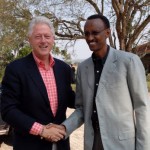 ination, we are in a better position to understand why Judge Trevidic refused to dismiss in November 2013 the ICTR's investigation into Habyarimana's assassination. Kagame (pictured right with Bill Clinton) was tied not only to Museveni's Uganda, but also to the Pentagon and its various branches (i.e., the CIA and the State Department), thereby giving him access to the requisite military and diplomatic support to carry out a rapid and coordinated military response on the morning after Habyarimana's plane crash.38 After the assassination, the U.S must have kept too much military and diplomatic information hidden from the international community for the UN to intervene effectively. After all, Kagame's military connections had provided him with the necessary diplomatic aid to cover up an ongoing civil war in his country between 1990 and 1994. He used those various connections, facilitated by the bias of NGOs regarding their services, to forge a robust network of international campaigns that presented his men as freedom fighters all the while demonizing Habyarimana.39
ination, we are in a better position to understand why Judge Trevidic refused to dismiss in November 2013 the ICTR's investigation into Habyarimana's assassination. Kagame (pictured right with Bill Clinton) was tied not only to Museveni's Uganda, but also to the Pentagon and its various branches (i.e., the CIA and the State Department), thereby giving him access to the requisite military and diplomatic support to carry out a rapid and coordinated military response on the morning after Habyarimana's plane crash.38 After the assassination, the U.S must have kept too much military and diplomatic information hidden from the international community for the UN to intervene effectively. After all, Kagame's military connections had provided him with the necessary diplomatic aid to cover up an ongoing civil war in his country between 1990 and 1994. He used those various connections, facilitated by the bias of NGOs regarding their services, to forge a robust network of international campaigns that presented his men as freedom fighters all the while demonizing Habyarimana.39 "During the 1970s, in fact, Rwanda was in good health financially and economically. This period was characterized by high economic growth rates (5 % on average), financial stability and a weak inflation rate. This situation resulted from high coffee prices and very prudent policy management. In this Rwanda, which was regarded as the "Switzerland of Africa", the illusion of socioeconomic progress was strong between 1976 and 1983." 41
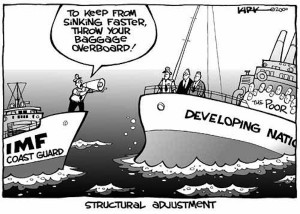 The World Bank, for its part, acted as if politics did not exist by thinking it could apply economic "shock therapy" to a country facing a severe demographic crisis and on the verge of civil war.52 Its so-called Loan Completion Report, for instance, congratulated Habyarimana for his efforts to democratize but "failed to even acknowledge the existence of a civil war prior to April 1994." 53 Moreover, the World Bank long stayed mute as the same donor institutions were financing both sides in the civil war. 54 Therefore, the UN and its concomitant institutions, the IMF and World Bank, actively provoked an economic recession without considering its potentially devastating sociopolitical effects. Then, the international community led by the US remained on the sidelines as it watched Rwanda's habitual ethnic tensions burst into a full-scale genocide. Its resultant failure to democratize Rwanda pushed it to reaffirm Western legitimacy by promoting the Hutu extremist narrative, which in turn pressured Habyarimana to 'democratize' at the Arusha Accords via the introduction of multiparty elections.55
The World Bank, for its part, acted as if politics did not exist by thinking it could apply economic "shock therapy" to a country facing a severe demographic crisis and on the verge of civil war.52 Its so-called Loan Completion Report, for instance, congratulated Habyarimana for his efforts to democratize but "failed to even acknowledge the existence of a civil war prior to April 1994." 53 Moreover, the World Bank long stayed mute as the same donor institutions were financing both sides in the civil war. 54 Therefore, the UN and its concomitant institutions, the IMF and World Bank, actively provoked an economic recession without considering its potentially devastating sociopolitical effects. Then, the international community led by the US remained on the sidelines as it watched Rwanda's habitual ethnic tensions burst into a full-scale genocide. Its resultant failure to democratize Rwanda pushed it to reaffirm Western legitimacy by promoting the Hutu extremist narrative, which in turn pressured Habyarimana to 'democratize' at the Arusha Accords via the introduction of multiparty elections.55"Seeing the way the wind was blowing, these opposition parties began to establish direct ties with the RPF in the hope of gaining similar international support for themselves. As a result, leaders of opposition parties and the Rwandan Patriotic Front met in Brussels from May 29 through June 3, 1992, and issued a joint press release. It turns out, in fact, that those meetings were attended by opposition parties."60
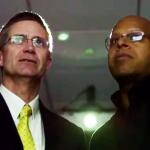 r the ICTR, two prominent American political scientists, Christian Davenport and Allan C. Stam (both pictured right), blamed the RPF for upholding the above mentioned mathematical impossibility. They were in turn insulted and menaced by the RPF for their 'negationist' conclusions and eventually removed from the ICTR. 74 Therefore, the ICTR may have been set up to be independent, competent, impartial and established by law. Yet, its subservience to the RPF's cause ultimately prevented it from adopting any of these features. The UN Security Council, for its part, had to maintain the Hutu extremist narrative to preserve its legitimacy and therefore encouraged the ICTR's refusal to provide many of the accused Hutus with their most fundamental right to an impartial and independent trial.
r the ICTR, two prominent American political scientists, Christian Davenport and Allan C. Stam (both pictured right), blamed the RPF for upholding the above mentioned mathematical impossibility. They were in turn insulted and menaced by the RPF for their 'negationist' conclusions and eventually removed from the ICTR. 74 Therefore, the ICTR may have been set up to be independent, competent, impartial and established by law. Yet, its subservience to the RPF's cause ultimately prevented it from adopting any of these features. The UN Security Council, for its part, had to maintain the Hutu extremist narrative to preserve its legitimacy and therefore encouraged the ICTR's refusal to provide many of the accused Hutus with their most fundamental right to an impartial and independent trial."Anyone who could pass the one-hour test qualified for a fast track training program that lasted anywhere from one to five months. At the end of it, successful candidates were declared to be qualified prosecutors, investigators, and judges. Formal education had never really been an issue in Rwanda, where only one in fifty judges of the pre-war judiciary had a degree in law."86
"If the tribunal does not handle (Habyarimana's assassination), it is because it does not have jurisdiction in the matter. It is very true that it triggered everything. But in and of itself, attacking the plane and killing the president are not acts that falls under the articles that give us jurisdiction."90
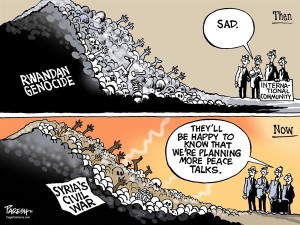 er hand over the defendant during trials because the former possesses documents that the Rwandan authorities have secretly or officially given it, which means that the defense can only really start working when the plaintiff decides to communicate the information.92 Unlike an inquisitorial legal system, where an investigating judge is tasked with filtering out inconsistencies in the evidence, the amount of information gathered under an adversarial system (i.e., common law) rests on the goodwill of the opposing camps. Put differently, both sides do their own filtering of information. The main problem with this adversarial setting is that it renders any hope of cooperation impossible. Since the official narrative is upheld by refusing to take into account the evolution of knowledge on the genocide, it is necessarily in the plaintiff camp's best interest to refrain from communicating to the defendants new information that may incriminate Kagame. This problem is not unique to the Rwandan Genocide since revisionist historians and political dissidents around the world are being ostracized and/or jailed for challenging the validity of a wide range of 20th century official narratives (Holocaust revisionism is the most poignant example).
er hand over the defendant during trials because the former possesses documents that the Rwandan authorities have secretly or officially given it, which means that the defense can only really start working when the plaintiff decides to communicate the information.92 Unlike an inquisitorial legal system, where an investigating judge is tasked with filtering out inconsistencies in the evidence, the amount of information gathered under an adversarial system (i.e., common law) rests on the goodwill of the opposing camps. Put differently, both sides do their own filtering of information. The main problem with this adversarial setting is that it renders any hope of cooperation impossible. Since the official narrative is upheld by refusing to take into account the evolution of knowledge on the genocide, it is necessarily in the plaintiff camp's best interest to refrain from communicating to the defendants new information that may incriminate Kagame. This problem is not unique to the Rwandan Genocide since revisionist historians and political dissidents around the world are being ostracized and/or jailed for challenging the validity of a wide range of 20th century official narratives (Holocaust revisionism is the most poignant example).Posted by: Nzinink <nzinink@yahoo.com>
| Reply via web post | • | Reply to sender | • | Reply to group | • | Start a New Topic | • | Messages in this topic (1) |
The hate of men will pass, and dictators die, and the power they took from the people will return to the people. And so long as men die, liberty will never perish.
I have loved justice and hated iniquity: therefore I die in exile.
The price good men pay for indifference to public affairs is to be ruled by evil men.
When the white man came we had the land and they had the bibles; now they have the land and we have the bibles.
----------------------------------------------------------------------------------------------------------
The Voice of the Poor, the Weak and Powerless.
-----------------------------------------------------------
Post message: AfricaRealities@yahoogroups.com
Subscribe: AfricaRealities-subscribe@yahoogroups.com
Unsubscribe: AfricaRealities-unsubscribe@yahoogroups.com
List owner: AfricaRealities-owner@yahoogroups.com
__________________________________________________________________
Please consider the environment before printing this email or any attachments.
---------------------------------------------------------------------------------------------------------------------
-http://www.africarealities.com/
-https://www.facebook.com/africarealities
-----------------------------------------------------------------------------------------
-New International Scholarships opportunities: http://www.scholarshipsgate.com
-----------------------------------------------------------------------------------------------
Find Friends in Africa:
http://www.africanaffection.com
http://www.datinginafrica.com/
http://www.foraha.net
https://www.facebook.com/onlinedatinginafrica


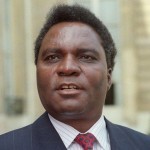







No comments:
Post a Comment
Note: only a member of this blog may post a comment.